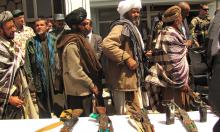New dino discovery sheds light on continent formation
US scientists found a cache of dinosaurs discovered in Niger may challenge our understanding of continental formation, have claimed this week. One of the dinosaurs - Rugops - was a wrinkle-faced carnivore, which lived about 95 million years ago.
Rugops had relations in South America, indicating Africa became a separate continent later than thought, some researchers believe. The work is detailed in the Proceedings of the Royal Society of London, informs BBC.co.uk.
According to oregonlive.com the scientists' analysis of the new species and its relationship with the other abelisaurs indicates that Africa and the other southern land masses forming the super-continent Gondwana separated about 100 million years ago rather than 120 million years ago. Gondwana was made up of South America, Africa, Antarctica, India and Australia.
Wilson said until the continents fully drifted apart, Rugops and other dinosaurs used narrow land bridges to colonize adjacent continents within only a few degrees of the South Pole.
"These discoveries tell us about how plate tectonics might have influenced the diversification of dinosaurs during the Cretaceous Period" about 65 million to 144 million years ago,Wilson said. "The African dinosaurs are giving us clues about the timing of the isolation for Africa and surrounding landmasses."
Sereno, a National Geographic explorer-in-residence, said Rugops is an early and primitive abelisaur. The 30-foot-long dinosaur's tough, scale-covered head had a short, round snout and small delicate teeth. The paleontologist said the head is not designed for fighting or bone-crushing, leading him to speculate Rugops was a carrion-eating scavenger rather than an animal that attacked its prey.
Two rows of seven holes along the snout may have been where ornamental features for display were attached. Sereno said Rugops is a "beautiful, intermediate species" of the group that evolved into the first horned predators.
Subscribe to Pravda.Ru Telegram channel, Facebook, RSS!





